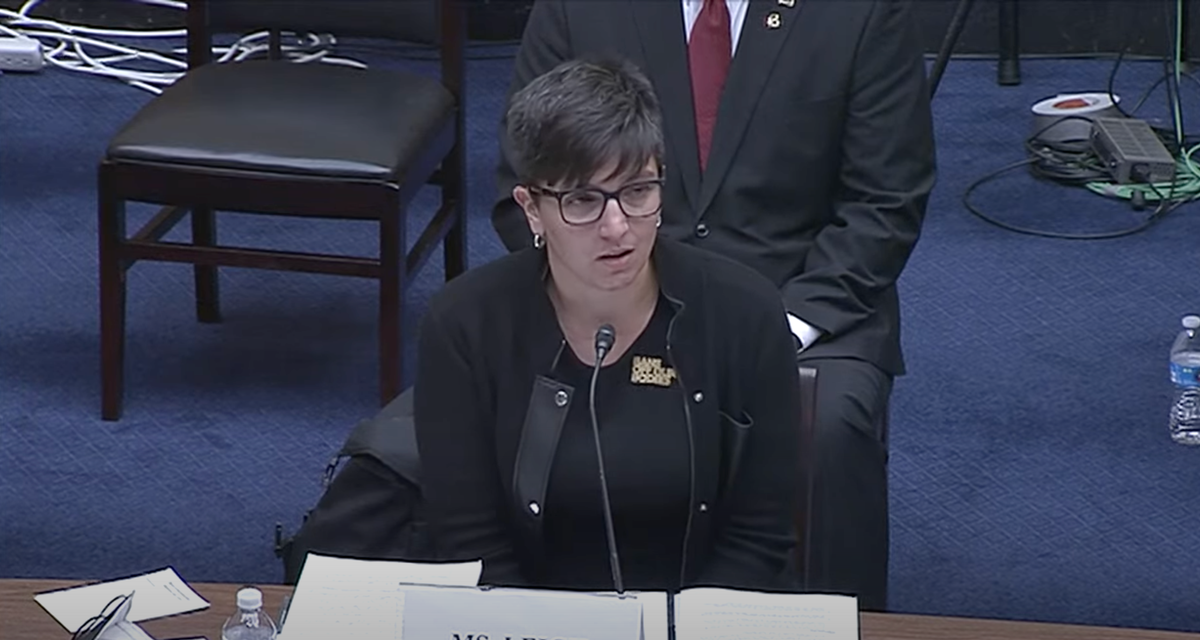Woman who had to abort 22-week pregnancy pleads with Congress to protect abortion rights: ‘Be the compassion’
Into her 20th week of a “very wanted” pregnancy, Kelsey Leigh was devastated to learn during an ultrasound that her unborn son had a fatal diagnosis.
If the pregnancy had continued, her child would likely not have been able to swallow, or breathe, and his bones would have broken during delivery, no matter the method, she told members of Congress on 29 September.
“I chose to end my pregnancy,” she testified during a House Oversight Committee hearing. “I could not and would not carry my son for four more months to give birth to him knowing his life would be filled with pain and suffering.”
Six weeks after her abortion at the 22nd week of pregnancy, as she was grieving the loss, she appeared at the Pennsylvania state legislature to successfully urge lawmakers to reject a proposed anti-abortion law that would have legally complicated or outlawed her ability to access her abortion.
Ms Leigh brought a similar message to the Capitol on Thursday, nearly 100 days after the US Supreme Court struck down a constitutional right to care, as members of Congress consider nationwide restrictions on abortion access.
“Who are you going to be?” she asked. “Will you sit in judgment of people who are pregnant without knowing them or their circumstances, or will you listen to me and us and be the compassion that our country so desperately needs now?”
Abortion providers and advocates testifed to the committee about the far-reaching consequences of state-level anti-abortion laws that have advanced in the weeks after the Supreme Court decision that overturned precendents in the cases of Roe v Wade and Planned Parenthood v Casey.
Dr Nisha Verma, a fellow with Physicians for Reproductive Health who provides care in Georgia, said it is “indefensible” that lawmakers would interfere with patients’ ability to navigate their nuanced, complicated healthcare decisions.
“I urge you to listen to the people who provide and access abortion care,” she said.
Dr Bhavik Kumar, medical director for primary and transgender care at Planned Parenthood Gulf Coast, practises in Texas, where three overlapping anti-abortion laws include severe criminal penalties for providers, including life in prison.
Dr Kumar said that state-level anti-abortion laws have effectively created “two countries” within America: “One where people can control their own bodies, and another where politicians have decided for them.”
“As lawmakers, it’s your obligation to reckon with the devastating consequences of abortion bans for my patients and your constituesnts. It’s your duty to hear them too,” he said. “Over and over again, we are forced to violate our conscience and training to turn away patients who need us … Be creative, be bold, act like someone’s lives depend on you, because they do.”
Confusion among providers and hospitals, as well as the patients seeking critical care, about what emergency conditions are permitted under state-level bans has created legal chaos
“This is what happens when you eliminate a fundamental right … and you decide that anything goes and any state can do whatever they want,” she said. “It is unsettling and unnerving for people and devastating to not have access to protections in the Constitution … that people have rightly depended on for years.”
Republican lawmakers on the panel accused Democrats of “fear mongering” to generate sympathy for abortion rights and dismissed arguments that abortion restricions have far-reaching impacts, including maternal health and mortality and as an economic issue.
“Forcing poor and working class people to give birth against their will … against their ability to provide for themselves or a child is a profound economic issue,” according to Democratic US Rep Alexandria Ocasio-Cortez.
“It certainly is a way to keep a workforce, basically, conscripted,” she said. “The idea that abortion and access to abortion is somehow not a profound and central economic and class issue and class struggle is certainly something I think a person who has never had to contend with the ability to carry a child – it belies that perspective.”
In his opening remarks, US Rep Jody Hice said abortion is a “morally, spiritual and religious issue for millions of Americans who hold to a Biblical view of life” and that “to force people to violate their deeply held religious convictions is just wrong.”
He called hearing a “desperate political ploy” to “distract the American people from the issues they’re facing”.
Ms Leigh said anti-abortion rhetoric on the panel “creates stigma and shame and it’s wrong.”
“It’s really difficult to sit and hear that and not actually be looked into the eye … and be asked about my experience,” she told the committee.
“No one needs to be reminded of the sanctity of life. We need to be reminded that this is a nuanced, complex decision that is never going to be answered by a binary yes or no question or the amount of weeks my ultrasound shows,” she added. “We need to leave people alone, to make these decisions for themselves, their families and the betterment of our communities.”


